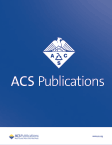摘要 ED11-01:炎症性乳腺癌是一种基因组学上不同的乳腺癌类型吗?
IF 3.4
Q2 PUBLIC, ENVIRONMENTAL & OCCUPATIONAL HEALTH
引用次数: 0
摘要
炎症性乳腺癌(IBC)是一种独特的侵袭性疾病,占乳腺癌确诊病例的 2 - 4%,但造成的乳腺癌相关死亡却高达 10%。IBC 仍属于临床诊断范畴,没有高度特异性的分子标记物,而且该疾病的基因组驱动因素尚未完全定性。在 IBC 中,人类表皮生长因子 2 扩增和三阴性疾病的比例过高,这给 IBC 和非 IBC 之间的比较带来了困惑。尽管如此,在比较临床研究和临床前模型的支持下,一些一致的基因组观察结果已经出现,可以开始解释 IBC 的特征性行为。本次会议将回顾突变分析、基因表达谱分析和表观遗传学研究结果,这些研究结果凸显了 IBC 和非 IBC 之间的相似之处和微妙差异。引用格式:F. Howard.炎性乳腺癌是一种基因组学上不同类型的乳腺癌吗?[摘要].摘要]:2023 年圣安东尼奥乳腺癌研讨会论文集;2023 年 12 月 5-9 日;德克萨斯州圣安东尼奥。费城(宾夕法尼亚州):AACR; Cancer Res 2024;84(9 Suppl):Abstract nr ED11-01.本文章由计算机程序翻译,如有差异,请以英文原文为准。
Abstract ED11-01: Is inflammatory breast cancer a genomically different type of breast cancer?
Inflammatory Breast Cancer (IBC) is a unique and aggressive disease, constituting 2 - 4% of breast cancer diagnoses yet responsible for up to 10% of breast cancer related deaths. IBC remains a clinical diagnosis, without highly specific molecular markers, and the genomic drivers of the disease are incompletely characterized. The overrepresentation of human epidermal growth factor 2 amplification and triple-negative disease within IBC have confounded comparisons between IBC and non-IBC. Nonetheless, some consistent genomic observations have emerged that may begin to explain the characteristic behavior of IBC, supported by both comparative clinical studies and preclinical models. This session will review mutational analysis, gene expression profiling, and epigenetic findings that highlight similarities as well as subtle differences between IBC and non-IBC.
Citation Format: F. Howard. Is inflammatory breast cancer a genomically different type of breast cancer? [abstract]. In: Proceedings of the 2023 San Antonio Breast Cancer Symposium; 2023 Dec 5-9; San Antonio, TX. Philadelphia (PA): AACR; Cancer Res 2024;84(9 Suppl):Abstract nr ED11-01.
求助全文
通过发布文献求助,成功后即可免费获取论文全文。
去求助
来源期刊

ACS Chemical Health & Safety
PUBLIC, ENVIRONMENTAL & OCCUPATIONAL HEALTH-
CiteScore
3.10
自引率
20.00%
发文量
63
期刊介绍:
The Journal of Chemical Health and Safety focuses on news, information, and ideas relating to issues and advances in chemical health and safety. The Journal of Chemical Health and Safety covers up-to-the minute, in-depth views of safety issues ranging from OSHA and EPA regulations to the safe handling of hazardous waste, from the latest innovations in effective chemical hygiene practices to the courts'' most recent rulings on safety-related lawsuits. The Journal of Chemical Health and Safety presents real-world information that health, safety and environmental professionals and others responsible for the safety of their workplaces can put to use right away, identifying potential and developing safety concerns before they do real harm.
 求助内容:
求助内容: 应助结果提醒方式:
应助结果提醒方式:


